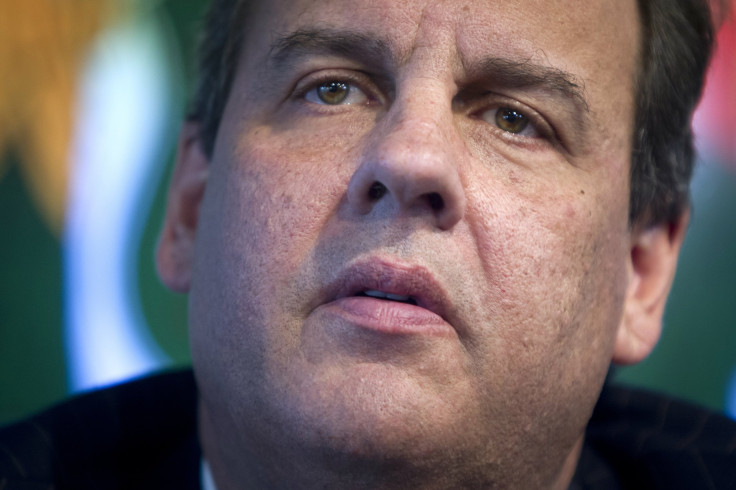Chris Christie Appointee Derides Push To Tighten Anti-Corruption Laws

TRENTON -- New Jersey Gov. Chris Christie's appointees today backed a proposal to invest $100 million of state pension cash in a firm whose chairman was a top donor to the Christie-led Republican Governors Association. When discussing renewed questions about state money continuing to flow to Republican donors, Christie's top investment official declared that he opposed bipartisan legislation to tighten the state's anti-corruption rules because, he said, expanding existing "pay-to-play" prohibitions might incur too many costs.
Reacting to an International Business Times report showing that a top KSL Capital executive had given $2 million to the RGA last year, Christie's State Investment Council chair Tom Byrne said at a public meeting Wednesday that the pattern of giving “doesn’t violate our guidelines in any respect” but that he thought “all council members ought to be aware” of the contributions. The council then permitted the $100 million investment in KSL Capital to move forward.
The Investment Council’s current "pay-to-play" rules are generally designed to block pension management deals from being awarded to firms whose executives make campaign contributions to public officials like Christie whose appointees oversee pension investments. Those rules, Byrne asserted, don’t apply to the RGA donations. That’s because, in 2014, Christie officials altered them to ensure they wouldn’t apply to "a federal or national campaign committee” operating in New Jersey.
In response to IBTimes' investigative series on New Jersey pension deals flowing to firms whose executives contributed to Republican groups, state lawmakers last month passed a bipartisan bill to restore the ban on contributions to federal committees like the RGA. After Wednesday's council meeting, Byrne said he had “talked to a number of Democrats in the legislature about that,” and has been urging them to oppose the proposal for tougher pay-to-play rules. He said the legislation is "overbroad" and asserted that if signed into law, it "would cause us to probably have to liquidate a lot of our private equity portfolio. In terms of service to the beneficiaries, I don’t think that would be wise.”
It is unclear if Christie will sign the legislation. Byrne said that, while he has not spoken with Christie about the legislation, he has implored Democratic legislators not to attempt to override a veto if Christie rejects it.
“I can’t speak for legislators, but I would expect if the governor vetoes the bill that passed, there would not be an attempt to override it," he told IBTimes. "I think that once there’s a little bit more focus on the implications of it you’d have a little bit of a different sentiment in the legislature.”
Pressed about other pension deals – including a $300 million commitment to a subsidiary of a foreign firm whose Hong Kong-based executive contributed to Christie and continued investments in Prudential Financial funds after its former lead director served as Christie’s finance chair – Byrne refused to comment.
“I don’t remember all the facts and circumstances. I don’t want to be evasive, I’ll just have to go back and look at it,” Byrne said.
Byrne wasn’t the only Christie official concerned about the push to strengthen and more aggressively enforce the state's pay-to-play rules. Christie's Division of Investment director, Christopher McDonough, suggested it might be too burdensome to ask Christie officials to search the state government's own website and other campaign finance databases for political contributions from investment managers.
“The deeper that you want the division to dig into this, the more resources it’s going to require,” McDonough said. “You know, I made a comment, partially in jest, internally the other day that I am somewhat concerned that the ‘I’ in Division of Investment is going to change to ‘Division of Investigation’ if we take this too far.”
© Copyright IBTimes 2025. All rights reserved.






















